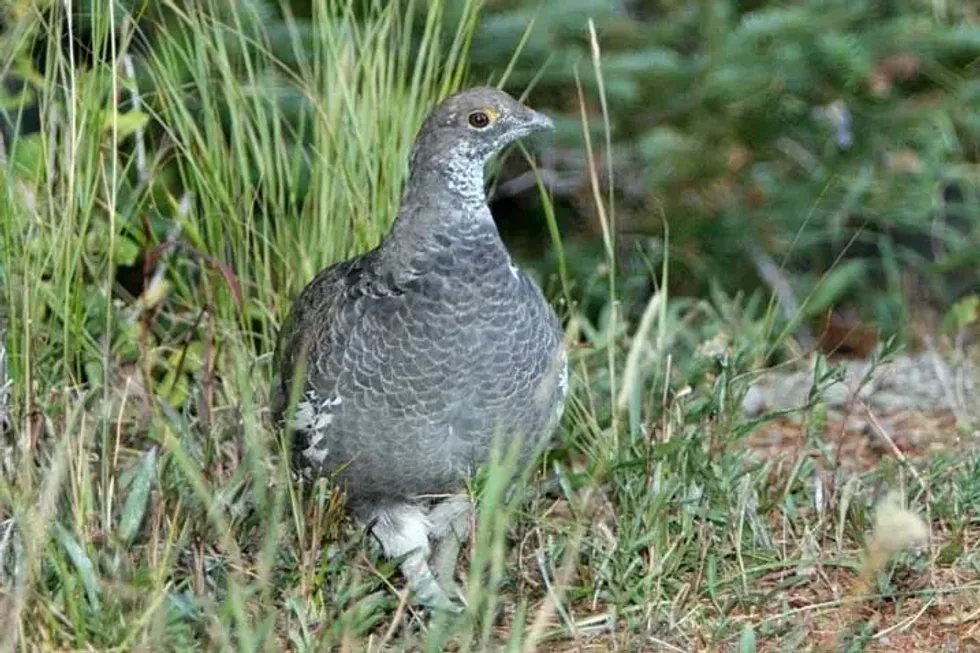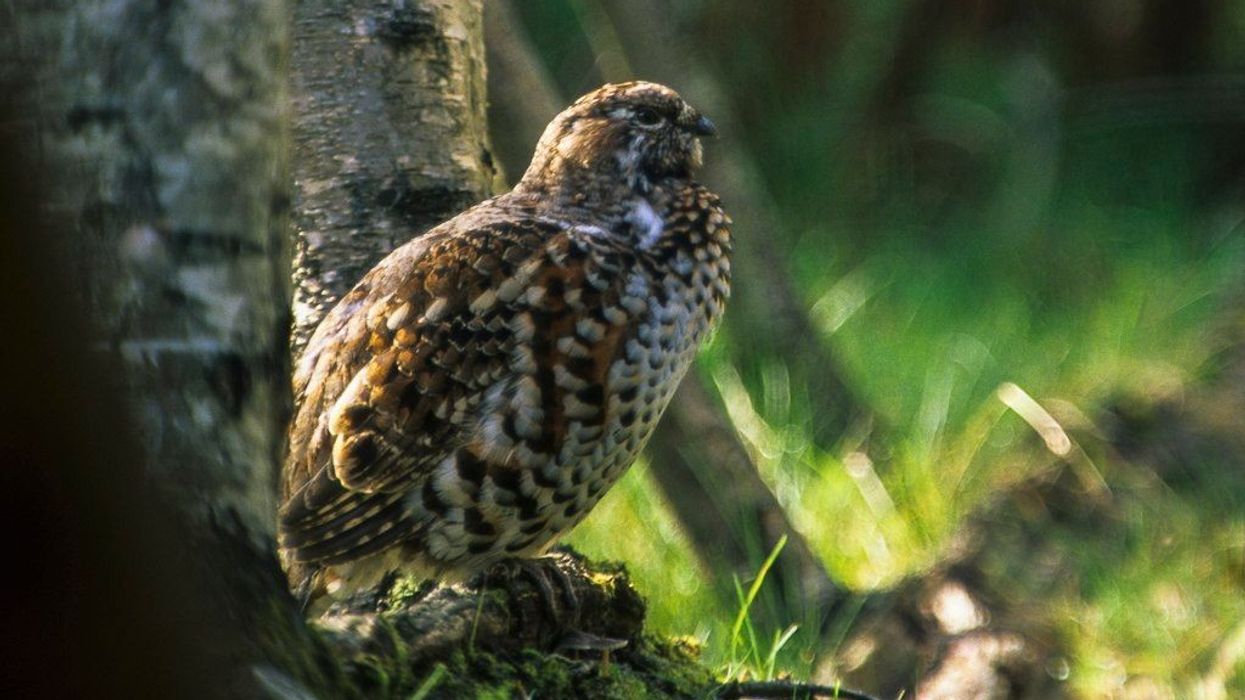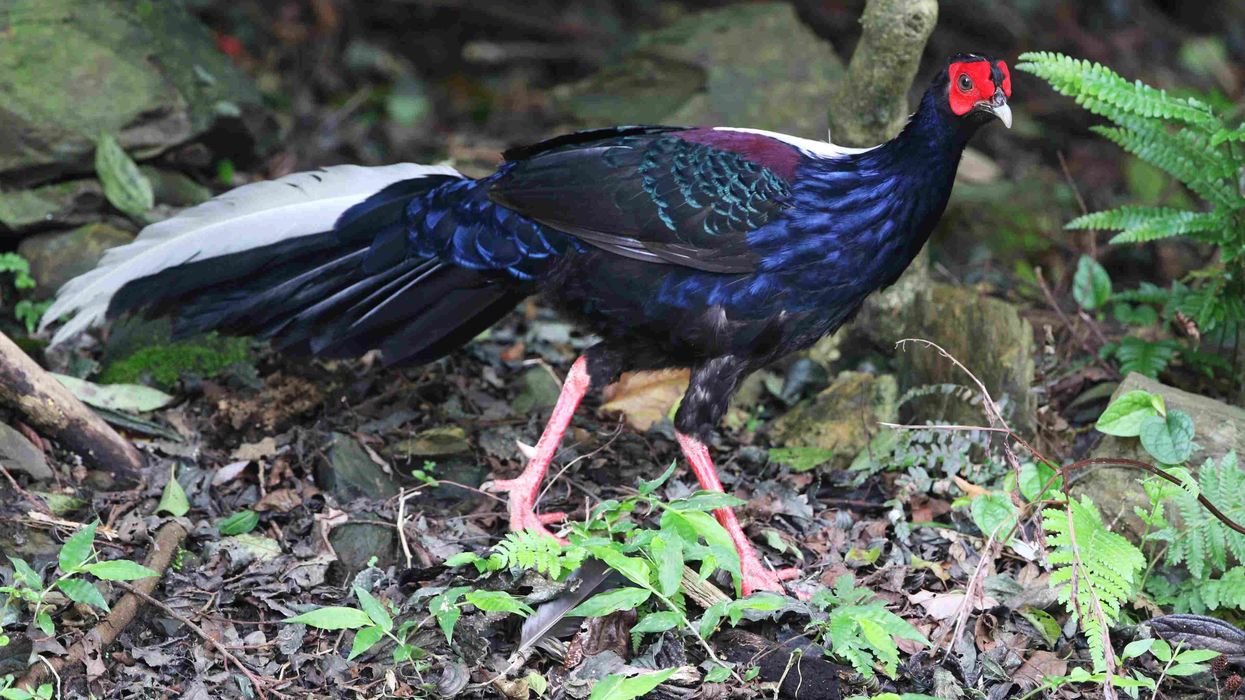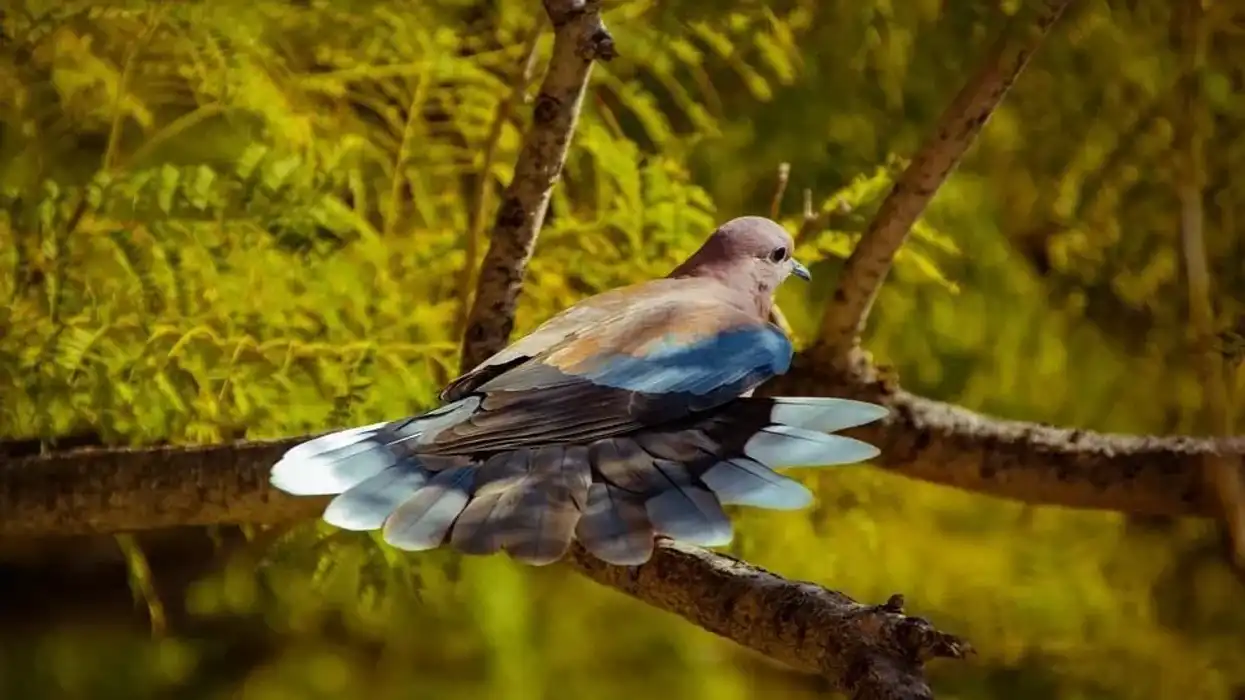The dusky grouse (Dendragapus obscurus) is a large gray bird endemic to the Rocky Mountains in North America. The blue grouse was known to be a combined species of the dusky grouse and the sooty grouse. Later on, both of these two similar species were broadened and classified as two distinct birds.
These versatile North American birds live in a variety of habitats that depend on the seasons. These birds undergo migration mainly in the winter months and during their breeding season, where they may travel short distances.
These forest-dwelling species generally search for food on the ground or low perched branches. Hence, they can be found easily in any mountain forest during the winter months with abundant conifer needles, douglas fir needles, and pine needles.
However, their prime location is the open country forest area that has ample sagebrush flats. Another interesting attribute would be their camouflaged appearance and their plumage that has a variety of colorations from black, brown, and gray to wrinkled purplish-red.
If you were fascinated with what you read, then you can read more about this bird below. You can also check out more articles on spruce grouse and blue grouse.
Dusky Grouse Interesting Facts
What type of animal is a dusky grouse?
The dusky grouse (Dendragapus obscurus) is a type of bird that is a member of the Phasianidae family.
What class of animal does a dusky grouse belong to?
The dusky grouse is a bird; hence it belongs to the class of Aves.
How many dusky grouses are there in the world?
Dusky grouses are numerous and widespread, with over three million members of the species alive in the wild.
Where does a dusky grouse live?
Dusky grouses live in various geographic ranges, from deciduous and mixed forests to dense conifer forests. Dusky grouses are endemic to North America and are actively found in the Rocky Mountains. They are found all across the Western United States and Canada.
What is a dusky grouse's habitat?
These grouses are associated with dense forests that have an undergrowth of shrubs. In summer, they generally migrate to mixed forests with an abundance of subalpine meadows, sagebrush flats, and alpine habitats. They range from mixed forests to coniferous forests according to the ongoing season.
The douglas fir, spruce, and lodgepole pine are some of the most prevalent trees where they are generally found during the winter months. In a nutshell, this bird is found all across the northern states, from low-lying areas to higher elevations. Migration occurs according to the availability of food sources, and usually, migration takes place in the winter season.
Who do dusky grouses live with?
This bird species is generally not too solitary. During the summer season, they live in smaller groups containing around seven individuals, mainly parents and young grouses. In the winter months, they form larger flocks, with over 20 birds in each of these flocks.
How long does a dusky grouse live?
This grouse species can live up to 14 years. However, most of their species die during their first year, and others are observed to live up to three years.
How do they reproduce?
Breeding is commenced by the males, where they use hooting calls to attract females. The breeding season takes place during the spring or summer months. The males sing and continue to produce deep hooting sounds throughout summer to find a female who is ready to mate.
Males search and claim a breeding territory, followed by defending the territory, which is done with the help of their tail feathers. Soon after breeding, the female grouse lays around seven to nine eggs, or sometimes even 12 eggs, followed by the incubation period, which lasts for about 18-21 days.
The eggs usually hatch in June, and soon after hatching, the young ones fledge in a day or two. The chicks or the young ones attain sexual maturity at the age of one year.
What is their conservation status?
Their status is listed as a Least Concern species by the IUCN, International Union for Conservation of Nature.
Dusky Grouse Fun Facts
What do dusky grouses look like?

These birds are beautifully detailed, with gray, black, white, and red throughout their body. The male birds are likely to have whitish-gray plumage, whereas the female birds are examined to have grayish-brown feathers with a tint of white to them.
These North American birds have very distinct eye combs, especially the male grouse have yellowish-orange eye combs, whereas the female grouse has a darker and dull shade of yellow. During displays, the male grouse has ruffles over its neck feathers that reveal a purple-reddish feathered area, and they have solid black tail feathers with a gray border.
How cute are they?
These grouses are very adorable and cute. The detailed neck motifs of solid red feathers are the most beautiful aspect of these birds.
How do they communicate?
These grouses use visual, acoustic, and tactile channels to communicate. For instance, the males sing and hoot to lure the females. They provide parental care to the young ones and defend them from threats by hissing and aggressively flapping. They mainly use various calls, chirps, and clucks to communicate.
How big is a dusky grouse?
These birds are 17.3-22.4 in (44-57 cm) in length. These grouse are 50% bigger than spruce grouses.
How fast can a dusky grouse move?
These birds are really fast and swift. They can travel distances of over 30 miles; however, their speed is not evaluated yet.
How much does a dusky grouse weigh?
This bird weighs around 40.9-45.2 oz (1158-1281 g).
What are their male and female names of the species?
There are no distinct names for their male and female species. However, generally, a male bird is termed a rooster, and a female bird is called a hen.
What would you call a baby dusky grouse?
A baby or a young grouse is called a chick or hatchling.
What do they eat?
These birds primarily feed on conifer needles, leaves, flowers, blueberry, gooseberry, hemlocks, insects, and lodgepole pine. The young birds also eat small insects.
Are they poisonous?
No, these birds are not poisonous, and neither do they pose any threats to humans.
Would they make a good pet?
No, they would not make a good pet as they are used to the wild habitat of the forest.
Did you know...
In North America, dusky grouses are the third-largest grouses in the entire grouse family, with the two sage grouses, namely Greater and Gunnison grouse, topping the list.
Do people hunt dusky grouse?
Yes, they are hunted by humans in the dense forests as they are often used as game birds. However, they are very difficult to hunt as they choose to live in very dense habitats. They can be easily found in the Routt National Forest of Colorado because of the habitat and availability of aspens.
Comparisons with other grouse
Dusky grouse are closely related to the sooty grouse as both of these two distinct species used to be considered the same and were collectively called blue grouse. The blue grouse is a grayish-blue bird and collectively refers to the dusky grouse and sooty grouse.
Here at Kidadl, we have carefully created lots of interesting family-friendly animal facts for everyone to discover! Learn more about some other birds, including the Guam rail and the greater sage grouse.
You can even occupy yourself at home by coloring in one of our free printable dusky grouse coloring pages.










